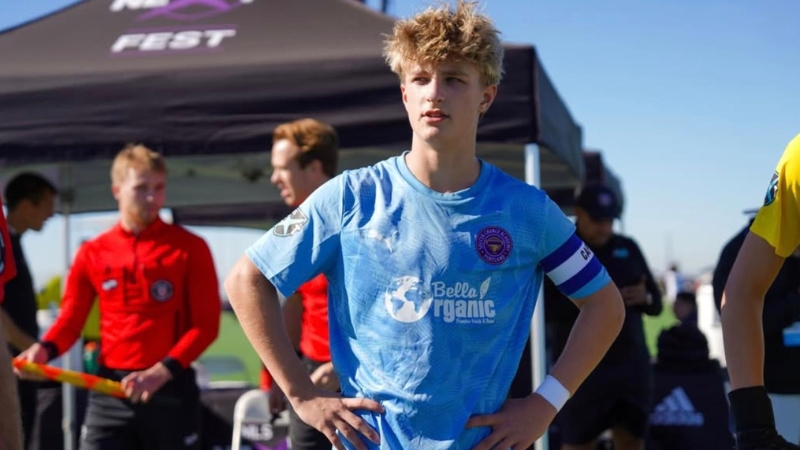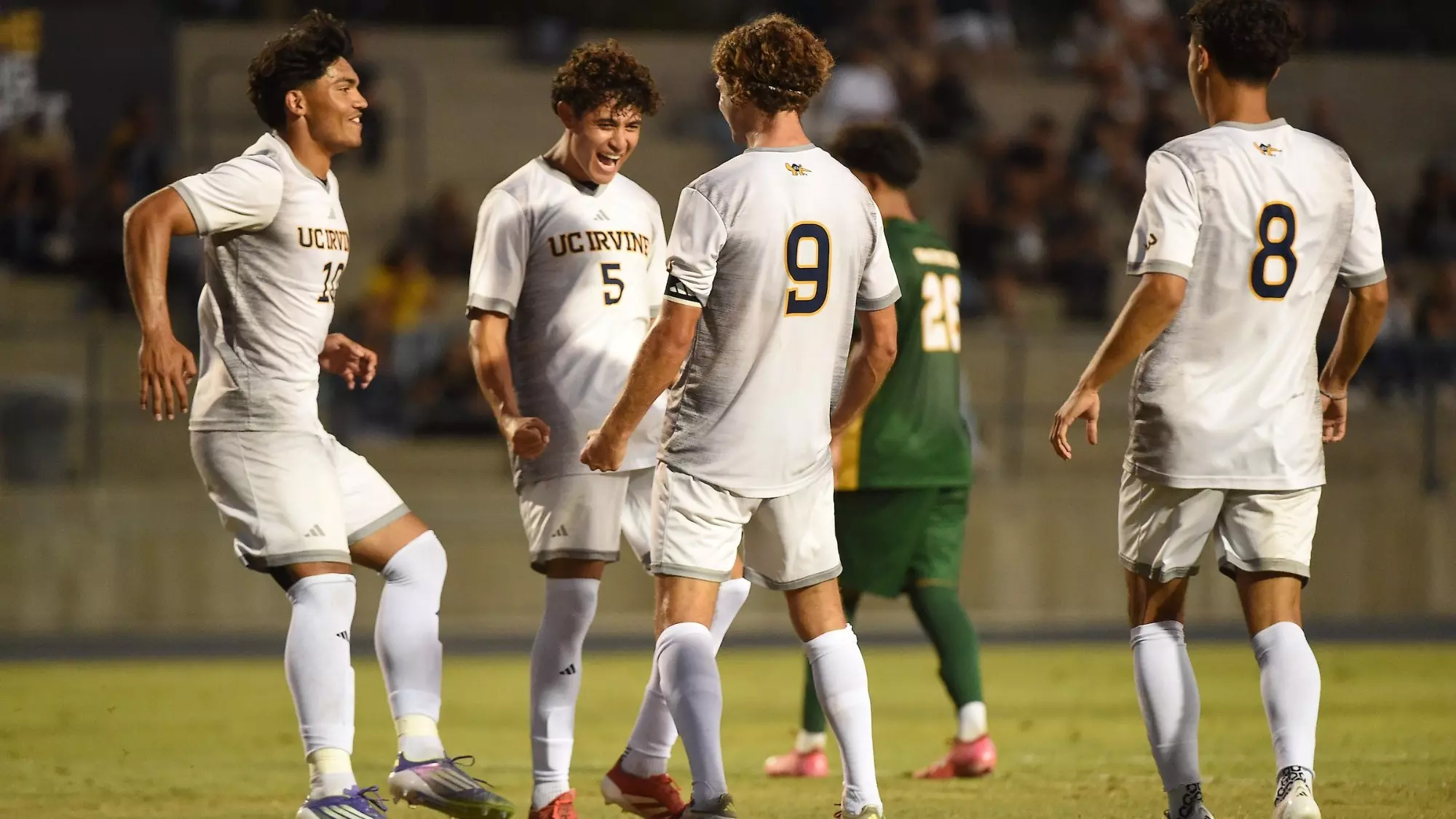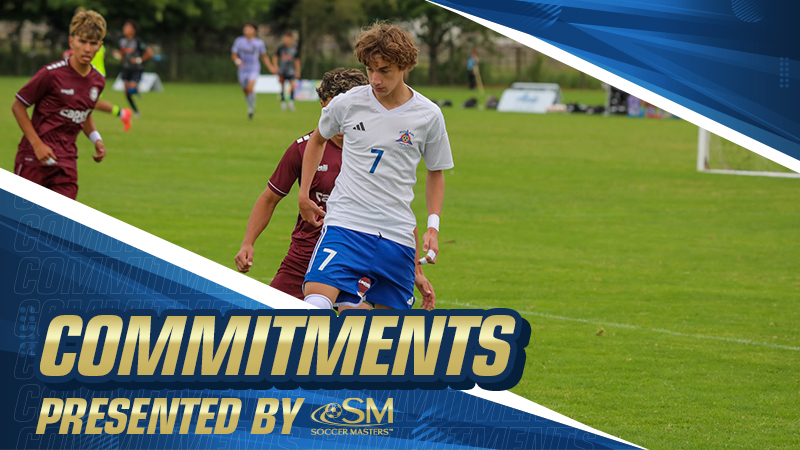A Decade Later: Glynn (Fitzer) Brown
By: Justin Lafleur, Lehigh Sports Communications
After graduating from Lehigh in 2011, Glynn (Fitzer) Brown returned home to the Chicago area. She's glad she did, but very much cherished her time in the Brown and White.
It was a time that ended with the ultimate prize – a Patriot League Championship.
"I really cherished the time in Eastern Pennsylvania," said Brown. "I have all kinds of friends in that area of the country, but it was great to come back to the Chicagoland area because I'm really close to my family.
"It's a happy place."
Ten years ago, Brown was a senior leader on the Mountain Hawks, and happy celebrating a championship. Today, she's using a number of skills learned as a student-athlete in her role as a clinical therapist.
"I have my master's degree in social work from Loyola Chicago and I'm mental health specialized," said Brown. "I'm currently working at a hospital in downtown Chicago doing psychiatric crisis work."

That work has seen an even greater spotlight lately surrounding the COVID-19 pandemic, and the numerous mental health issues that have stemmed from it.
"People are generally resilient," said Brown. "I've been really impressed with how resilient we've been dealing with all the stress this year, all the constant changes and rolling with the punches. But everybody has a particular threshold for stress and right now, the baseline threshold is already taken up by the pandemic, political stuff, etc.
"I keep hearing essentially the same story from the patients I see," she continued. "Everyone I see is admitted for a medical reason. I work with the psychiatrist, depending on acuity of symptoms, to identify and address any underlying psychiatric concerns. Case presentations run the gamut from serious survived suicide attempts with terrible resulting injuries, to acute psychotic episodes interfering with a person's ability to care for their basic needs or guard themselves from harm, to providing support around a new cancer diagnosis."
Lately, a lot of mental health issues have surrounded job losses stemming from the pandemic.
"Maybe they had been sober for 30 years from alcohol, but now they're home all the time, they don't have structure and they've relapsed," said Brown. "Or they have a history of terrible depression and they usually do pretty well, but the isolating and staying at home – and there not being the usual outlets they would ordinarily have to deal with their stress – creates this perfect storm of a major depressive episode."
Brown's interest in psychology and mental health dates back to an abnormal psychology class taken in high school.
"I actually didn't know what I wanted to major in for the first couple years at Lehigh, but psychology always kept my interest in an academic, intellectual kind of way," she said. "Being a linear person, I like to move through things from visible points a to b to c. I talked to one of my psychology class professors and asked her what kind of master's degrees you need to get if you want to work in emergency rooms for mental health crises.
"She recommended social work."
Brown earned her Bachelor of Arts from Lehigh in psychology.
In her second year of graduate school, Brown went from interning in the emergency room (at the same hospital where she's working now), to becoming co-manager of that same crisis team internship program she had once been a part of.
"It's been a rewarding, full-circle experience, going from intern on a team to co-manager of it, shepherding in the next generation of crisis workers," she said.
No one from Brown's family has done this kind of work, but she finds it very interesting and intellectually stimulating.
"You can see the same diagnosis, but it looks so different in each person's specific situation," she said. "There's never a dull moment."
As a collegiate student-athlete, Brown never seemed to have a dull moment either, balancing academics and athletics.

"I remember soccer and being a student-athlete so much more than I remember my classes," said Brown. "That said, I liked my classes. Through athletics, I feel like I picked up a really good ability to be a very persistent person and persevere.
"I came away with a sense of being really hard-working and also valuing the leaders in my life… while being that for others in my life, too. I picked up a lot from just being on a team and working towards common goals, and doing so as essentially a full-time job."
Immediately after earning her master's, Brown's first full-time job came at a community mental health agency.
"I did a combination of psychiatric crisis work and individual therapy," she said. "Then, I moved over to the hospital and more community social work, going to people's homes or meeting them in the community and helping them with more pragmatic needs like housing – all against the backdrop of mental illness."
The patients Brown sees are usually at one of the lowest points of their lives.
"They just need somebody to talk with," she said. "It's a pretty big privilege for me to be there for somebody. A lot of people I see don't have good support systems, so they have to substitute seeing professionals to bridge that gap. It's also rewarding to see how much progress they make."
In many ways, Brown prepared for what she's doing today just by being in a team setting with Lehigh women's soccer. She learned how to converse with all different types of people, working and improving towards a common goal.
That goal, a championship, came in 2010 due in large part to the determination of Brown and her senior classmates.
"We really wanted it," she said. "We felt like it was our team and we were going to put in whatever work it took. We tried to instill that work ethic as a group. We really modeled that expectation and desire to win to the younger LUWS players. It was pretty infectious and created a culture of working hard and keeping our eyes on the prize."
The Mountain Hawks were led by current head coach Eric Lambinus, who wound up winning the program's first-ever Patriot League championship in his first season. The title was the byproduct of a strong dynamic between the coaching staff and senior leaders.
"I appreciate, and see so much more now, what he did in letting us take ownership of that season," said Brown. "It must have been intimidating, scary and a little bit delicate to come into that situation (a senior-laden team) for his first year. I remember the upperclassmen talking about how we really appreciated the way he respected that this was our team."
Lambinus could see the potential in the senior class, so he provided guidance while letting the student-athletes identify, create and work towards their goals (which is more effective when it comes organically from the student-athletes anyway).
"I was really fortunate to take over the Lehigh team with so many great leaders, who were willing to work with a new coach to achieve a common goal," said Lambinus. "Glynn was a part of a group of three seniors and three fifth-year seniors who were hungry to compete for Patriot League Championship. They absolutely provided the culture and dedication needed to win.
"All I needed to provide was the confidence to play the way I knew they could, and provide the framework to succeed."
The seniors took that framework and ran with a culture of hard work and accountability.
"I am very much a natural extravert and have always held myself to a really high standard, especially in a team environment – whether it's at work today or back at Lehigh on my team," said Brown. "If I was going to work this hard and hold myself to a certain standard, I expected my teammates to do the same.

"I could be a little on the firm side, but in a supportive way," she continued. "And that's actually really consistent with who I am. I never would ask anything more of anyone else than I would of myself."
Brown is a high achiever who admits she gets great satisfaction out of helping bring others along.
That's exactly what happened in 2010.
"I feel like we had really good buy-in across the board," said Brown. "The culture amongst us was this expectation that this is our (seniors') last year of playing; you're coming with us or you're not. That sense of togetherness for a common goal was felt all the time."
It was a time Brown will never forget. Her student-athlete experience continues to resonate with her to this day.
"You just have so many formative experiences in college," she said. "One thing I really loved about being on a soccer team was that I became best friends with girls who, if we hadn't been thrust into a team environment together, may never have met each other and become friends."
Those friends continue to keep in touch to this day, many years after making Lehigh women's soccer history.
"I really cherish that period of time in my life," said Brown. "I honestly can't believe it's been 10 years. I feel like so much has happened since then in some ways, and so little has in other ways. I really love that program. I'm so grateful to have had the opportunity to play and study there, and have met all the people that I did.
"I definitely wouldn't change it for the world."
Headlines
- Recruiting Roundup: January 5-11
- Professional Signing Tracker: 2025-26
- Tracking Division I Coaching Changes
- 2026 Women's Division I Transfer Tracker
-
Ten MLS Next AD U17 Players to Know

- U18, U19, U20 MNT Training Camp Rosters
-
ECNL Boys FL: Top Under-16 Performances

-
Commitments: ECNL Star to the WCC

- TopDrawerSoccer TeamRank Update - Girls
-
ECNL Girls FL: Under-16 Players to Watch




